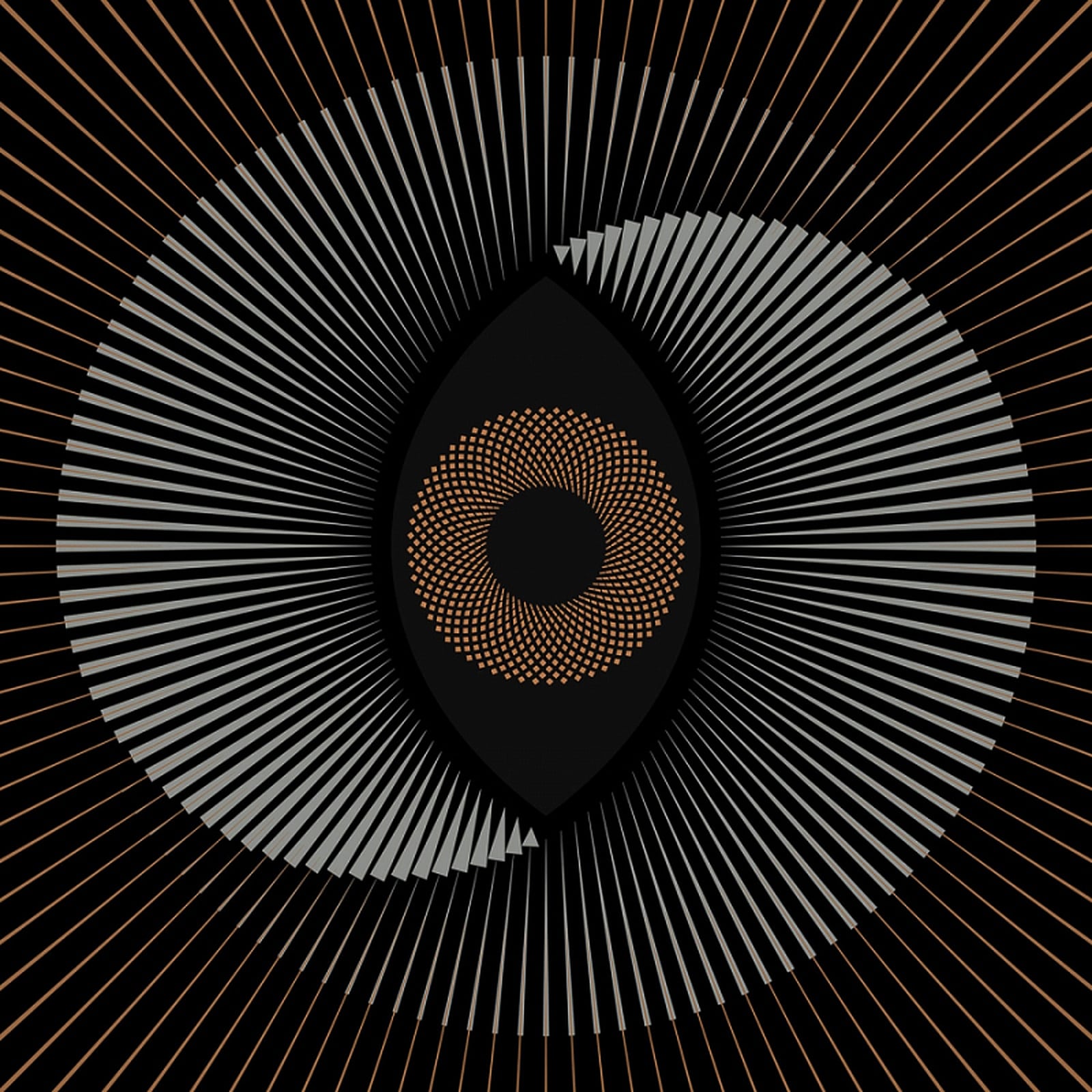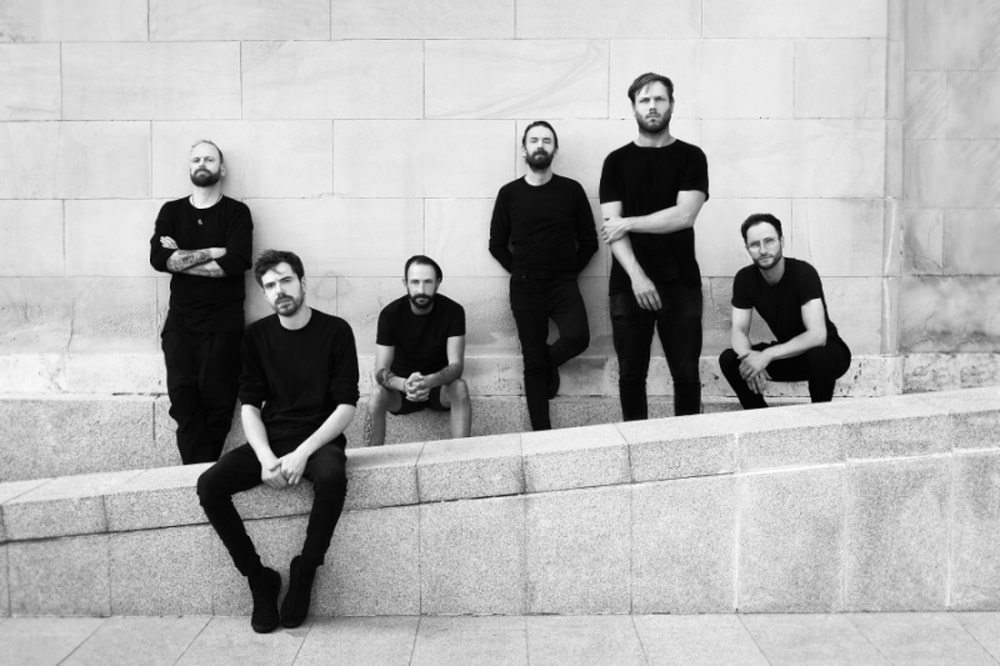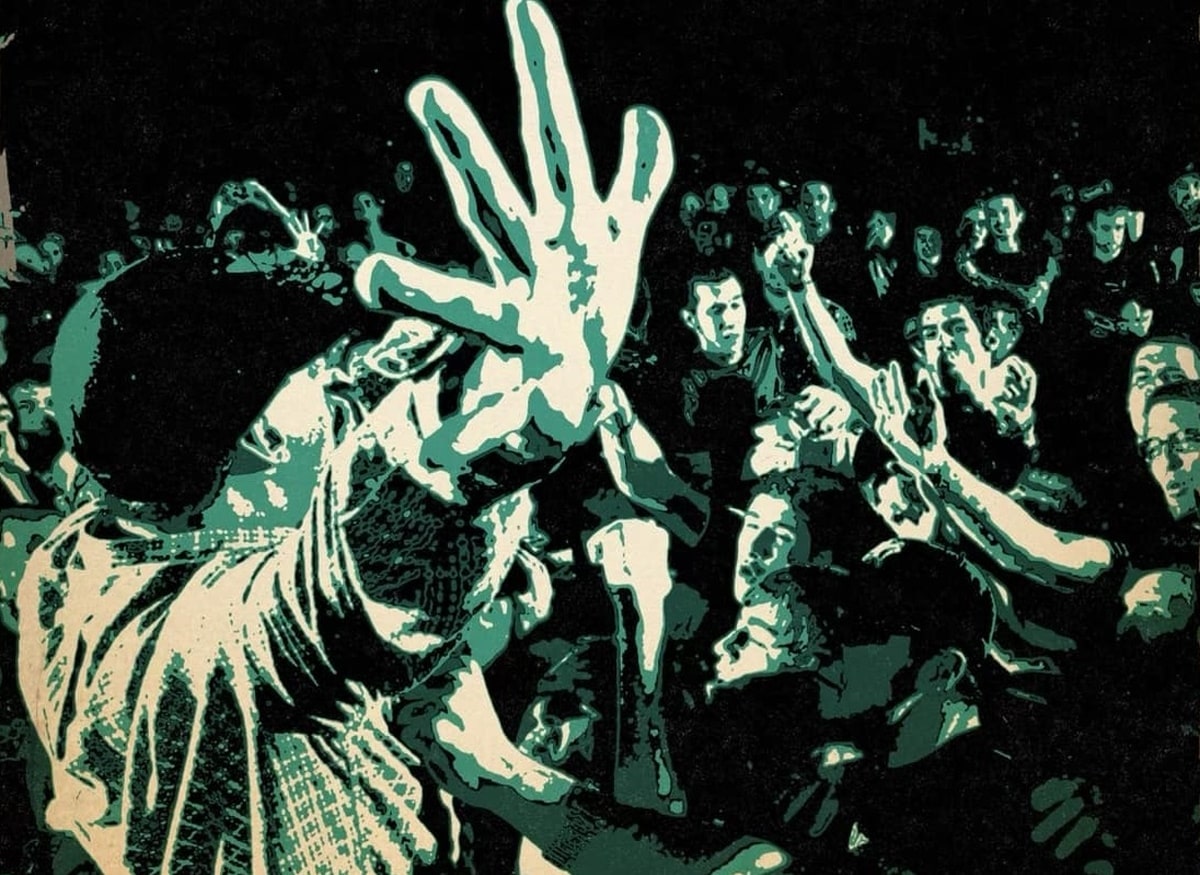Right off the back of a 6 months world tour, the Berlin-based atmospheric post metal juggernaut The Ocean (Collective) returns with the follow-up to their critically acclaimed Phanerozoic double album. Holocene sees The Ocean add a closing chapter to their palaeontology-inspired album series, presenting a gear shift towards the electronic world while reaching new depths of heaviness at the same time.
Phanerozoic II ended with a track titled “Holocene”, and now it’s clear that this track was pointing in the direction of things to come, both conceptually and musically. The dark, synth-driven track Holocene ends abruptly and yet connects seamlessly with the beginning of the new album: the haunting synth sounds of opener “Preboreal”, released as th first single off th album on January 16th.
Enter the Holocene—the latest and thus-far shortest epoch on the geological time scale in which humanity appeared on the planet. Through rapid proliferation and technological progress, our species has shaped and changed our planet in ways unprecedented in history. Moving into the human age, The Ocean have become more intimate and captivating musically, while creeping deeper into their own DNA with numerous references to their earlier discography which older fans will cherish.
Staps explains about the writing process behind Holocene: “The writing process of every album we’ve ever made started with me coming up with a guitar riff, a drumbeat or a vocal idea. This album is different since every single song is based on a musical idea that was originally written by Peter (Voigtmann, synths). He came up with these amazing synth parts that were already sounding huge in pre-production, and he sent me some of those raw, unfinished ideas during mid lockdown 2020… and while it was all electronic, it had that definite Ocean vibe to it. It made me want to pick up my guitar instantly… and so I did, and it didn’t take long until we had an inspiring creative exchange that was heading towards totally unforeseen but very exciting places.”
In many ways Holocene is a departure as much as it is a return to the band’s roots. It is only logical that the album was recorded entirely by the band themselves at Voigtmann’s studio Die Mühle in the rural North of Germany and at the band’s own Oceanland 2.0 studio in Berlin. This approach also led to the desire for a different approach towards mixing the album.
“While we still think that Jens Bogren’s mixes of our previous 3 albums sound great, we wanted a more organic sound this time around, says Staps. “So we set out on a mission to get test mixes done by a number of people, from close friends to some pretty big names, but none of them came close to how we wanted this record to sound, and after a few months we got really frustrated.”
This is when Swedish producer and long time ally Karl Daniel Lidén came around as the delivering angel, with a test mix that convinced the band to hire him for mix and mastering. Lidén’s mix brings an unprecedented clarity to the sound of the band, with a huge, ambient drum sound contrasting the electronics, and a warm and fat but somewhat brittle guitar tone that suits the diverse string work on the album incredibly well and merges with the tone of the brass into orchestral grandeur.
Across their vast discography The Ocean have been on a continuous crusade against close-mindedness, ignorance and intellectual obstinacy, from the distinct anti-Christian sentiment of their -centric records through the psychological, Tarkovsky-inspired contemplations on Pelagial to exploring Nietzsche’s ideas of amor fati and Eternal Recurrence on the Phanerozoic albums.
On Holocene, The Ocean continue their strife, tackling subjects like the rise of conspiracy theories during the pandemic («Boreal»), the morbid grand-scheme social quest for eternal youth («Parabiosis») and how our current day’s instagram-society is epitomizing Guy Debord’s visionary socio-economical analysis in the „Society of the Spectacle“ («Preboreal»). The booklet of the album is indeed peppered with quotes by Debord and Raoul Vaneigem. Debord was a founding member of The Situationist Internationale, a French protest movement made up of avant-garde artists and political theorists that sought to create ‘situations’—moments in which the monotony of everyday capitalist routine was disrupted without having to buy commodities. They wanted to encourage people to find moments of truth and real experience among the all-pervasive consumerist lie.
By placing their subject matter in the context of Situationism, The Ocean create an overarching narrative for their music, unifying the separate themes of Holocene, as well as the band’s previous releases, into a single universal message: an act of resistance against our Society of The Spectacle.
“Holocene is an appendix to the 2 Phanerozoic albums and Precambrian, or the final and concluding chapter, making it a quadrilogy if you want so”, Staps comments. “It’s tackling the Holocene epoch, which is the current and shortest chapter in earth’s history, but it is essentially an album about the angst, alienation, loss of reason and critical thinking, rise of conspiracy theories and deconstruction of values in the modern age.”
With Holocene, The Ocean draw us into their momentum of truly forward-thinking music and relentless live performances. More than 20 years into their career, this Berlin-based collective still shake us to the core, inviting us to reconsider our lives from different angles. Holocene unites the might of this massive act’s past and present, while creating a deeper understanding of their world as well as ours in the process.
Back from another world tour, The Ocean Collective from Berlin brings its restless exploration of our troubled nature close to home. Preboreal opens with haunting synths, shimmering vibraphones and beckoning horn-sections. Purposely building towards an explosive finale lamenting the loss of our critical faculties, The Ocean deliver a striking mirror of our souls.















